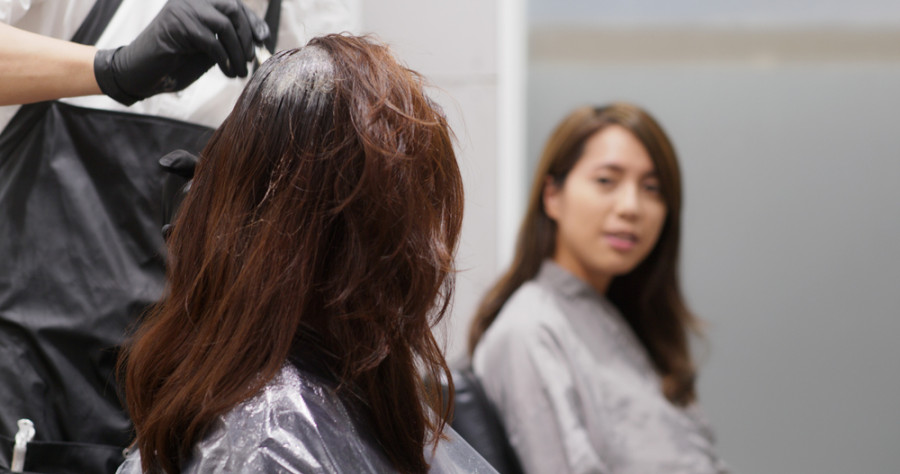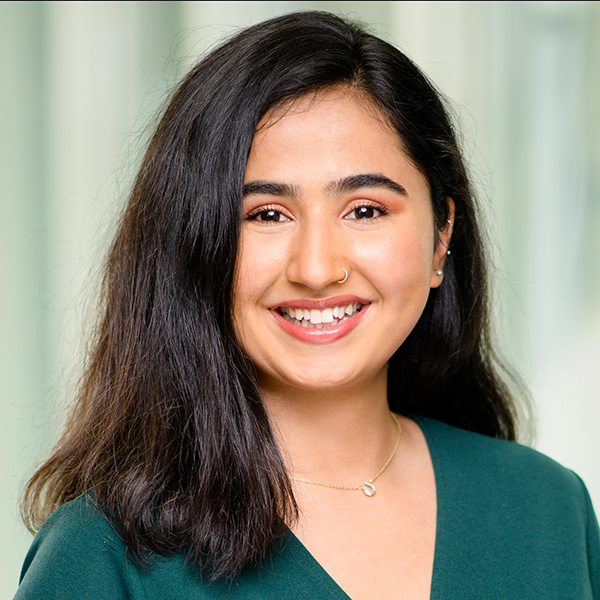National
How the ubiquitous beauty salons are becoming therapeutic spaces for women
Beyond ‘beauty’, parlours can be safe havens as it provides an emotional refuge for visitors to have intimate conversations and share their stories and feelings.
Aakriti Ghimire
As a beautician and hairdresser, Sita Ghimire’s job at SS Beauty Parlour and Training Center is to help women with their physical appearances. Her clients include the local women from around Tinthana area in Chandragiri, on the outskirts of Kathmandu.
But apart from providing her beauty services – that include threading, waxing, hairdressing, applying mehendi, manicure and pedicure – she is often an active listener for her clientele. Many share their personal issues with her as they receive services. While she may not be able to address their problems, she stands as an intent listener and creates a space for them to share their issues, at least during the period when she tends to their needs.
“Women come and share things that they usually can’t share in other spaces. Some talk about their mother in-laws, some about their daughter in-laws, some about religion, some about family, and work. I listen to them while I thread their eyebrows and do their hair,” says Ghimire, 39, who has been working as a beautician for the past 19 years.
Many may think women’s visits to such salons are meant just for maintaining their physical appearances or what they talk constitutes plain gossip.
But it’s more than skin-deep.
Local beauty parlours of late seem to have emerged as a new avenue for urban middle-class women to have intimate conversations, to share their stories and discuss their problems, and many say visiting the facilities is even therapeutic for them.
“It’s always relaxing to get scalp massages and face massages, but mostly I feel very safe in those spaces. There’s an aunty who makes tea or shares her lunch with us, and a lot of neighbourhood aunties come, especially before picking their kids from school, sometimes just to chat,” says Dikshya Karki, a fourth-semester student at the Central Department of Sociology, TU, who frequents parlours in the Patan area.
Beauty salons are ubiquitous in Kathmandu and elsewhere across the country. One can find such facilities, in various sizes and shapes, in almost every street corner, some run in just one small room, others in big malls and shopping centres. And these are major draws for women from the locality.
Divya Poudel, a first-year student of Animal Science at Syaure Bhume Madhyamik Vidyalaya, Sikre, Nuwakot, visits local beauty parlours quite often.
“Sometimes I share my frustrations with the parlour’s ‘aunty’, as I get my eyebrows threaded or have my hair cut. And I feel much happier and satisfied when I leave, both because of the service and the fact that there was someone who I can share my thoughts with,” she said. “And there are always other acquaintances to talk to.”
Research shows that beauty salons create spaces where marginalised communities learn to navigate the systems of oppression through collective care. These spaces can provide an emotional refuge for women by realising sister solidarity.
“These local beauty parlours cater to urban middle-class women,” says Pallavi Payal, an independent researcher and artist. “Women find solidarity in parlours, where they talk about daily stuff and even share their hobbies. I’ve heard women share a deep sense of interest in news and politics as well.”
While beauty salons may appear to be simple facilities that women visit to shape how one looks on the outside, but the frequenters say they avail the services for reasons beyond maintaining appearances and that they involve something deeper.
“Typically, people perceive beauty parlours as gossip hubs. But it’s definitely beyond that,” says Lajja Dixit, an art therapist. “Such parlours have emerged as spaces where women talk about their troubles or any other issues in their lives. Everyone has a story to tell. Storytelling is important because that’s how we express ourselves.”
Dixit emphasises the need to talk about one’s feelings to avoid overthinking and stress. For many middle-class women who do not find spaces to talk about their feelings or express their opinions freely, a beauty parlour provides such a space, “where people find common interests, intent listeners and diverse perspectives,” according to Dixit.
“Women don’t just share their feelings or vent; they also receive diverse thoughts, advice, and words of assurances from other women,” she says.
When it comes to trips to such beauty salons, most of the women tend to follow a certain pattern–that they mostly frequent the same place. Studies suggest the visitors and the service providers share a commercial relationship, but the frequency of trips tends to bring them much closer where the “clients” start freely talking about themselves, their stories and their problems in life. When they find the service providers as good listeners, they feel comfortable to share their issues and emotions which they might not be able to with friends or family members.
Ghimire, the beautician, says she has quite a many customers who seek solutions to problems in their lives.
“Since it’s a local parlour, there is always someone, as my clients are from the locality, to offer an advice or two,” says Ghimire. “Either by directing them to the nearest clinic, or a store, or any relevant resources, women help each other navigate the area. In doing so, it acts as a communal support system.”
Lalita Bashyal, a sociologist at Tribhuvan University, says as urban settlements expanded, women’s spaces to interact with each other have shrunk massively.
“Such women-only salons appear to have emerged as a good place for women to interact,” says Bashyal. “They can find an emotional refuge in these salons where they meet up with friends or other women from the locality.”
Sharing stories and feelings do help reduce stress and pain, but not every issue can be resolved from such public spaces, as they need to be dealt with professionally, according to sociologists.
“Discussing one’s issues and sharing personal and family matters provide comfort and such beauty salons do make safe spaces for women,” says Neeti Aryal Khanal, who holds a PhD in sociology. “Such visits and intimate conversations may be therapeutic, but sociologists say beauty salons cannot be–and should not be taken as–alternatives to professional therapeutic spaces or services.”
Nonetheless, these spaces serve as grounds of solidarity and trust for women.
In Nigeria, local hair salons were used as spaces to engage women in conversations about sexual and reproductive health products and services. Given that women do not have spaces where they feel comfortable to learn about these topics, salons in the US have also provided information on melanoma, diabetes, and unintended pregnancy. Local beauty parlors have an apt network of women and a rich contextual knowledge about their diverse identities and needs.
“When women share their stories of pregnancy, I explain ways to take care of their health, to the extent of my knowledge. Parlours can be used to disseminate a lot of information relevant and crucial for women,” says Ghimire, the beautician. ”They can be impactful hubs for leading conversations on sex education, family planning, domestic violence, menstrual dignity, reproductive health, and mental health.”




 9.51°C Kathmandu
9.51°C Kathmandu














